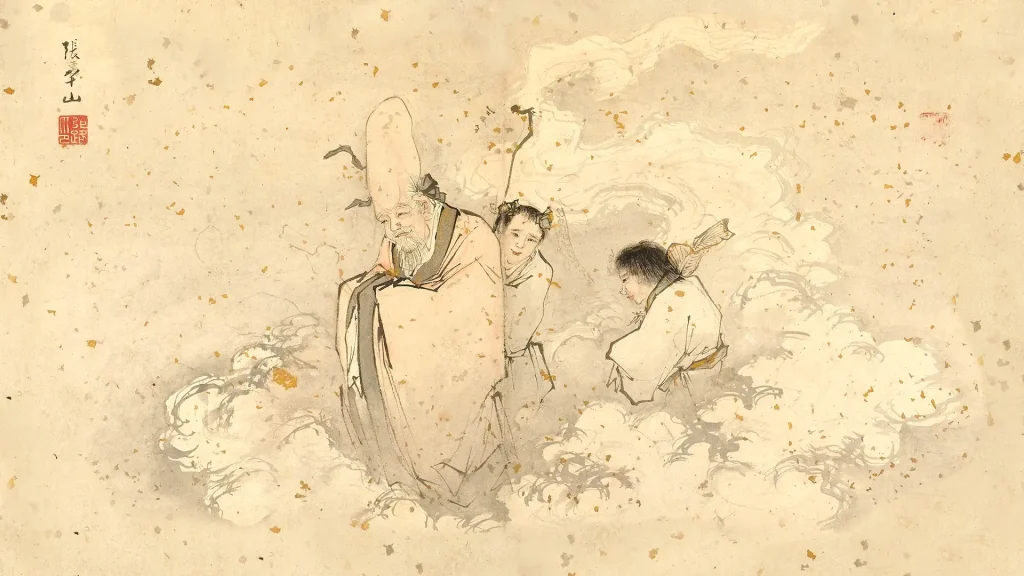
In this post, we will explore the concept of the three treasures in Ancient Chinese Medicine and how they relate to Tai Chi and Taoist alchemy.
The three treasures, also known as the three jewels or three treasures of life, are Jing, Qi, and Shen. According to Taoist philosophy and Ancient Chinese Medicine, these three treasures are essential for achieving optimal health and longevity. Each treasure plays a unique role in our physical, mental, and spiritual well-being, and they are intimately connected to each other.
Jing is the first treasure, also known as essence or ancestral qi. It is the foundation of our life force and is responsible for growth, development, and reproduction. Jing is stored in the kidneys and is believed to be finite, meaning that it is slowly depleted throughout our lifetime. It is said that Jing can be conserved and strengthened through physical practices like Tai Chi, as well as through meditation and herbal remedies.
Qi is the second treasure, also known as vitality or life force. It is the energy that flows through our bodies and is responsible for movement, circulation, and digestion. Qi is believed to be infinite and can be cultivated and strengthened through various practices like Tai Chi, Qigong, and meditation.
Shen is the third treasure, also known as spirit or consciousness. It is the aspect of ourselves that is responsible for our thoughts, emotions, and spiritual experiences. Shen is stored in the heart and is closely connected to our mental and emotional states. It is believed that the cultivation of Shen can lead to greater wisdom, enlightenment, and spiritual growth.
So, how do the three treasures relate to Tai Chi and Taoist alchemy? Let’s explore each treasure in more detail and how they relate to our Tai Chi practice.
Jing
In the Taoist classic, the Liezi, it is said that “The body is the palace of Jing.” This means that our physical body is the vessel that contains our Jing, and it is our responsibility to take care of this precious treasure. Tai Chi is an excellent practice for conserving and strengthening Jing because it is a low-impact exercise that is suitable for all ages and fitness levels. Deep breathing practices, such as Qigong, Daoyin and Tai Chi, are often recommended to cultivate and preserve Jing. The kidneys are considered the root of the body’s energy, and deep breathing exercises help to nourish and strengthen them. As you inhale deeply, your diaphragm contracts and your abdominal muscles expand, which generates heat and pressure in the lower abdomen and massages and stimulates the kidneys. The increased blood flow to the kidneys can help to support the production and preservation of Jing, promoting overall health and vitality.
According to Laozi, the founder of Taoism, “The way to do is to be.” This means that we must cultivate a state of being that is in harmony with nature and our own inner selves. By practicing Tai Chi, we can connect with the natural flow of energy in our bodies and in the world around us, allowing us to conserve and strengthen our Jing.
Qi
In the Zhuangzi, another Taoist classic, it is said that “The perfect man breathes as if he is not breathing.” This means that the cultivation of Qi should be so natural and effortless that it feels like we are not even doing anything. Tai Chi is an excellent practice for cultivating Qi because it emphasizes slow, flowing movements and deep, relaxed breathing.
In Tai Chi, we use our breath to guide the movement of our bodies and circulate Qi throughout our energy channels. By focusing on our breath and allowing it to guide our movements, we can cultivate a sense of calm and relaxation that allows Qi to flow freely through our bodies.
Shen
In the Tao Te Ching, Laozi wrote, “The sage is like the sun and moon that shine on all alike.” This means that the cultivation of Shen involves developing a sense of compassion and wisdom that extends beyond our own personal experience. Tai Chi is an excellent practice for cultivating Shen because it emphasizes awareness, mental focus, and emotional balance.
By practicing Tai Chi, we can develop a greater sense of self-awareness and emotional regulation, which allows us to cultivate a deeper sense of compassion and empathy for others. Tai Chi can also help us develop a greater sense of inner peace and stillness, which is essential for cultivating wisdom and spiritual growth.
Overall, the three treasures of Jing, Qi, and Shen are fundamental concepts in Taoist philosophy and are closely related to Tai Chi and Taoist alchemy. By practicing Tai Chi and cultivating the three treasures, we can achieve optimal health and longevity, as well as develop greater wisdom, compassion, and spiritual growth.
In conclusion, we hope this blog post has given you a deeper understanding of the three treasures and how they relate to Tai Chi and Taoist alchemy. If you are interested in learning more about Tai Chi and cultivating the three treasures, we invite you to join us at Cornwall Tai Chi for classes and workshops. Our experienced instructors can guide you on your journey towards optimal health, well-being, and spiritual growth. Thank you for reading, and we look forward to seeing you soon!
Leave a Reply